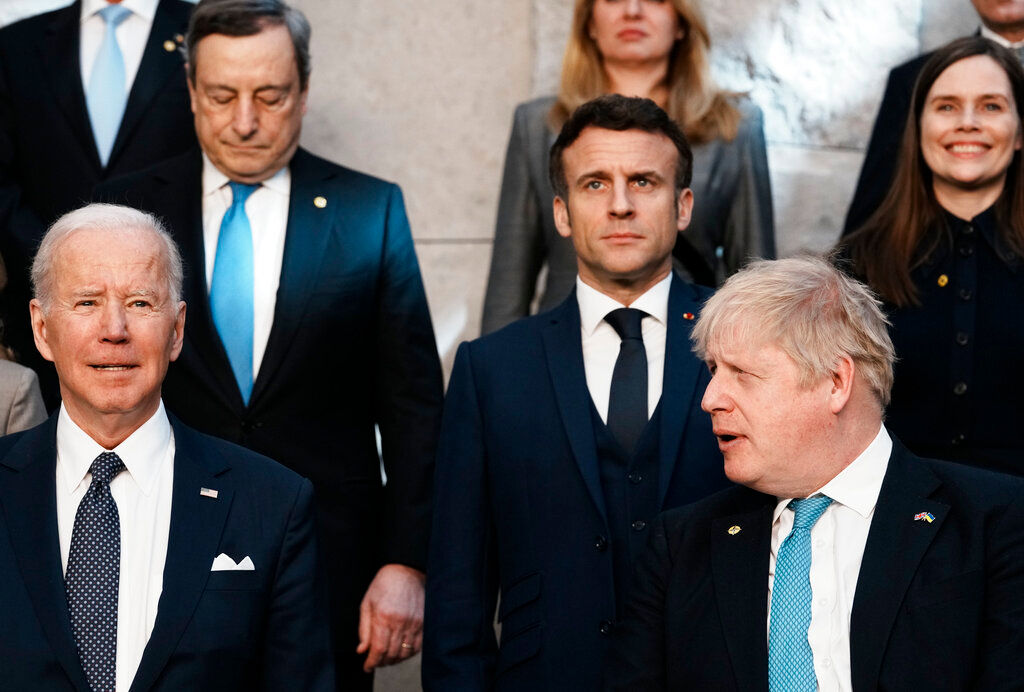President
Joe Biden and world leaders opened a trio of emergency summits on Thursday with
a sober warning from NATO Secretary-General Jens Stoltenberg that the alliance
must boost its defences to counter Russia’s invasion of Ukraine and
“respond to a new security reality in Europe.”
Also Read: Americans want President Joe Biden to be tougher on Russia: Poll
Stoltenberg
commented as he called to order a NATO summit focused on increasing pressure on
Russian President Vladimir Putin over the assault on Ukraine while tending to
the economic and security fallout spreading across Europe and the world.
“We
gather at a critical time for our security,” Stoltenberg said, addressing
the leaders seated at a large round table. “We are united in condemning
the Kremlin’s unprovoked aggression and in our support for Ukraine’s
sovereignty and territorial integrity.”
Also Read: Top US airlines urge Joe Biden to scrap COVID travel mandates as cases dip
He
said the alliance is “determined to continue to impose costs on Russia to
bring about the end of this brutal war.”
Over
the course of Thursday, the European diplomatic capital is hosting the
emergency NATO summit, a gathering of the Group of Seven industrialized nations
and a summit of the European Union. Biden will attend all three meetings and
hold a news conference afterward.
The
schedule left Brussels interlaced with multiple police checkpoints and road
closures to help motorcades crisscross the city as the leaders go from one
meeting to the next.
Also Read: Biden’s day out: What to expect from POTUS’ Europe tour
Biden
arrived late Wednesday with the hopes of nudging allies to enact new sanctions
on Russia, which has seen its economy crippled by several weeks of bans,
boycotts and penalties.
While
the West has been largely unified in confronting Russia after it invaded
Ukraine, there’s wide acknowledgement that unity will be tested as the costs of
war chip at the global economy.
Also Read: 7,000 to 15,000 Russian troops dead in 4 weeks of war in Ukraine: NATO
The
bolstering of forces along NATO’s eastern flank, almost certainly for at least
the next five to 10 years if Russia is to be effectively dissuaded, will also
put pressure on national budgets.
“We
need to do more, and therefore we need to invest more. There is a new sense of
urgency and I expect that the leaders will agree to accelerate the investments
in defense,” Stoltenberg said before the summit.
Biden’s
national security adviser, Jake Sullivan, said the US wants to hear
“that the resolve and unity that we’ve seen for the past month will endure
for as long as it takes.”
The
energy crisis exacerbated by the war will be a particularly hot topic at the
European Council summit, where leaders from Spain, Portugal, Italy and Greece
are hoping for an urgent, coordinated bloc-wide response. EU officials have
said they will seek U.S. help on a plan to top up natural gas storage
facilities for next winter, and they also want the bloc to jointly purchase
gas.







